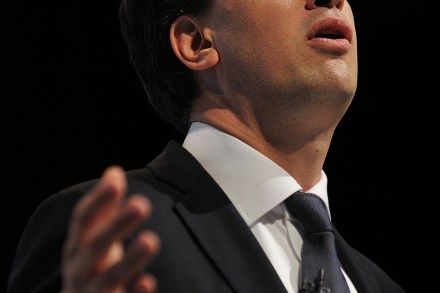Miliband’s empty promise
Miliband’s speech was meant to reach beyond the hall. “I aspire to be your Prime Minister,” he told country, “to fulfil the promise of Britain.” But, after an hour long speech, it is not wholly clear what the “promise of Britain” is. Miliband offered the hand of partnership to small businesses, the ordinary working family, those who want a cheap further education, working mothers, but it was not clear what they would obtain from the Labour leader. This was a speech virtually bereft of policy direction or a coherent theme. We have a clear idea of what and whom Miliband is against, but very little idea of what he is


















